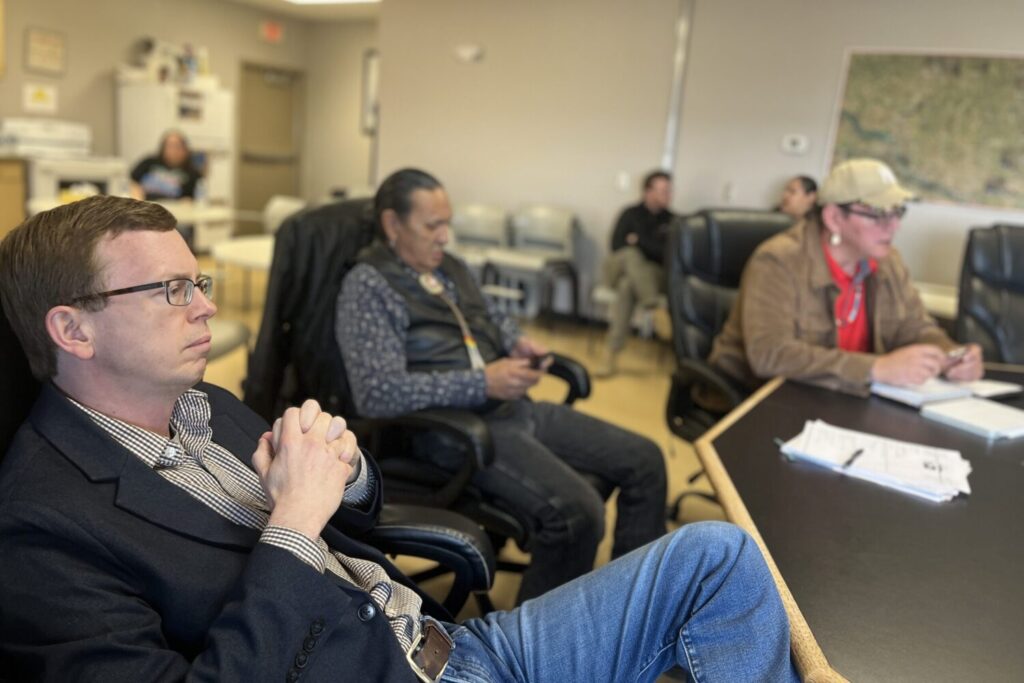
Joshua Haiar, South Dakota Searchlight
WAGNER — Yankton Sioux Tribe officials said Wednesday they know where the drugs on their tribal lands are coming from.
“Not the cartels,” said Justin Song Hawk, a former tribal police officer.
Other members of the Ihanktonwan Oyate — as the tribe is called in the Dakota language — chuckled in response. The comment was a reference to Governor Kristi Noem, who’s alleged repeatedly in recent months that Mexican cartels are bringing drugs to tribal reservations, and has accused tribal leaders of benefitting from the activity.
Song Hawk’s comments came during a meeting with South Dakota Republican U.S. Representative Dusty Johnson about the tribe’s law enforcement needs. The tribe, headquartered in southeast South Dakota, is one of nine Native American tribes in the state.
Tribal Chief of Police Edwin Young said drugs are coming from cities including Sioux Falls, and the primary drug is methamphetamine. He also told Johnson about several problems his department faces.
Young said he has one day off per month and has been working that schedule since December. He said there are only three officers, and the tribe needs about 12.
“About 80% of my time is spent patrolling,” he said. “The other tribes are the same way.”
He said one of the causes for short staffing is that tribal law enforcement officers have to train in New Mexico for months at a Bureau of Indian Affairs officer school.
Johnson said that’s a problem. He suggested allowing prospective tribal officers to train at the South Dakota Law Enforcement Training Center in Pierre.
“I can’t imagine anything but good coming from tribal law enforcement training alongside the state’s law enforcement,” Johnson said.
Young said another problem is that non-tribal, local law enforcement cannot help enforce tribal law on tribal land. He said more agreements allowing for that could be beneficial. That’s something Noem has also called for.
The federal government has treaty responsibilities to fund public safety work for tribes. Johnson said the U.S. Attorney’s Office and the FBI don’t have time for lower-level offenses. He said that creates an enforcement gap.
“You’re stuck with this big doughnut hole, where the tribes don’t have the authority to fill that gap, and the federal government doesn’t have the capacity to fill that gap,” Johnson said.
Young also said low bond amounts — which arrested people post to avoid jail time — are another problem. Johnson agreed.
“You get a lot of people bonded out on a $20 bond,” Johnson said, “for something where if you did that in Mitchell, you’d be doing six months in jail.”
